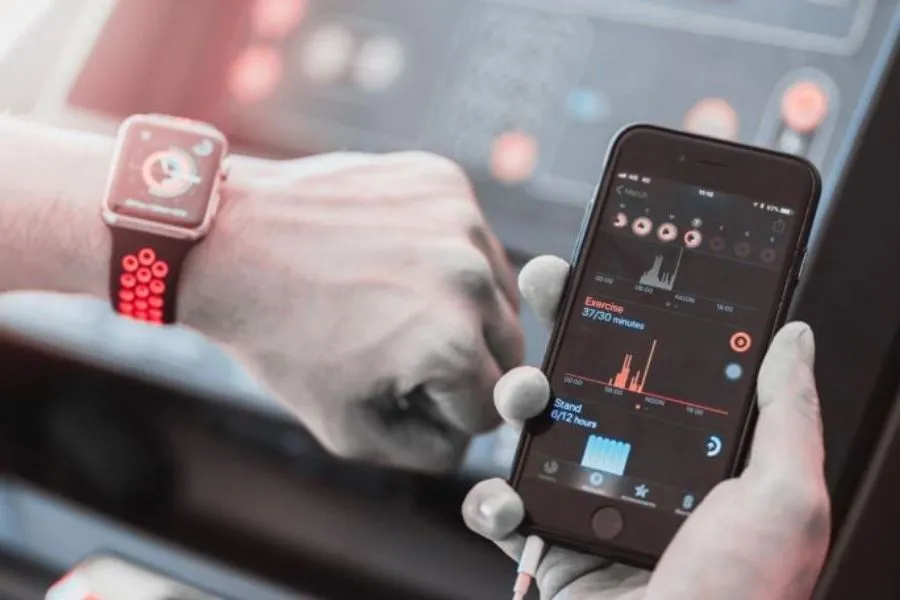The Future of Smart Gadgets: From Wearables to Connected Cars

Wearables
Smart gadgets have become an integral part of our lives, and their evolution has been nothing short of astounding. From the first smartwatch introduced in 1977 to the latest connected cars, smart gadgets are transforming the way we interact with the world around us. The evolution of smart gadgets can be divided into three main phases: the rise of wearables, the emergence of smart homes, and the growth of connected cars.
The Rise of Wearables
Wearables have taken the tech world by storm, and their popularity shows no signs of slowing down. From fitness trackers to smartwatches, wearables have become an essential part of our daily lives. Wearables help us keep track of our fitness goals, monitor our sleep patterns, and stay connected with the world around us.
One of the most significant trends in wearables is the integration of health monitoring features. Wearables can now track our heart rate, blood pressure, and even detect irregular heartbeats. These health monitoring features are particularly useful for individuals with chronic conditions, who can use wearables to monitor their health and manage their conditions.
Despite their popularity, wearables still have some limitations. Battery life is a significant concern for wearables, and many users find themselves having to charge their devices multiple times a day. Additionally, the accuracy of wearables can still be improved, particularly when it comes to tracking fitness metrics.
The Emergence of Smart Homes
Smart homes are another area where smart gadgets are making a significant impact. Smart homes use connected devices to automate and control various aspects of our homes, from lighting to temperature control. Smart homes are becoming increasingly popular, with estimates suggesting that the smart home market will be worth over $100 billion by 2025.
One of the most significant benefits of smart homes is the convenience they offer. With smart home devices, we can control various aspects of our homes with a single tap on our smartphones. Smart homes also offer enhanced security features, with connected cameras and sensors that can alert us to any potential security threats.
However, there are also some concerns around the privacy and security implications of smart homes. Smart homes are vulnerable to hacking, and there have been instances where hackers have gained access to connected devices and used them to spy on individuals. As smart homes become more prevalent, it is essential to address these privacy and security concerns.
The Growth of Connected Cars
Connected cars are the latest addition to the world of smart gadgets, and they are set to revolutionize the way we travel. Connected cars use a combination of sensors, cameras, and software to provide a more personalized and safer driving experience. Connected cars can provide real-time traffic updates, automatic emergency braking, and even self-driving capabilities.
One of the most significant benefits of connected cars is their potential to reduce accidents and improve road safety. Connected cars can detect potential hazards and alert drivers to take action, reducing the risk of accidents. Additionally, connected cars can help reduce traffic congestion, as they can communicate with each other and optimize their routes.
However, there are also some concerns around the ethical implications of connected cars. As self-driving technology becomes more prevalent, it raises questions around the safety of passengers and pedestrians. There are also concerns around the impact of connected cars on employment, as the widespread adoption of self-driving technology could lead to job losses in the transportation industry.
Advancements in AI and Machine Learning
One of the most significant drivers of the evolution of smart gadgets is advancements in artificial intelligence (AI) and machine learning. AI and machine learning are enabling smart gadgets to become more intelligent and intuitive, and are helping to improve the accuracy of wearables and the functionality of smart homes and connected cars.
AI and machine learning are also enabling smart gadgets to become more personalized. With AI and machine learning, wearables can provide more accurate fitness metrics, while smart homes can learn our preferences and adjust accordingly. Connected cars can also adapt to our driving habits, providing a more personalized driving experience.
The Future of Smart Gadgets
The future of smart gadgets is exciting, with new and innovative products set to hit the market in the coming years. Wearables are set to become even more sophisticated, with the integration of advanced health monitoring features and improved battery life. Smart homes are set to become even more intelligent, with the integration of AI and machine learning that will enable them to learn our preferences and adapt accordingly.
Connected cars are set to become the norm, with the widespread adoption of self-driving technology and the integration of advanced safety features. The future of smart gadgets is also likely to see the convergence of different devices, with wearables, smart homes, and connected cars all working together seamlessly.
Impact of Smart Gadgets on Society
The impact of smart gadgets on society is significant, with these devices transforming the way we live and work. Smart gadgets are enabling us to be more connected and productive, and are helping to improve our health and well-being. Smart gadgets are also helping to make our lives more convenient, with the ability to control various aspects of our lives with a single tap on our smartphones.
However, there are also some concerns around the impact of smart gadgets on society. Smart gadgets can be addictive, with many individuals finding it difficult to switch off and disconnect. Additionally, smart gadgets can have negative impacts on our mental health, with the constant notifications and alerts leading to increased stress and anxiety.
Ethical Considerations of Smart Gadgets
As smart gadgets become more prevalent, it is essential to consider the ethical implications of these devices. There are concerns around the privacy and security implications of smart gadgets, particularly when it comes to connected homes and cars. Additionally, there are concerns around the impact of smart gadgets on employment, particularly in industries that are likely to be disrupted by the widespread adoption of automation and AI.
It is also important to consider the ethical implications of the data that smart gadgets collect. With wearables, smart homes, and connected cars all collecting vast amounts of data, there are concerns around how this data is being used and who has access to it. As smart gadgets become more prevalent, it is essential to address these ethical considerations and ensure that these devices are being used in a responsible and ethical manner.
Conclusion
The future of smart gadgets is exciting, with new and innovative products set to hit the market in the coming years. From wearables to smart homes and connected cars, these devices are transforming the way we live, work, and interact with the world around us. However, it is essential to consider the ethical implications of these devices and ensure that they are being used in a responsible and ethical manner. With the right approach, smart gadgets have the potential to transform our lives for the better and make the world a better place.








